ARTICLE AD BOX

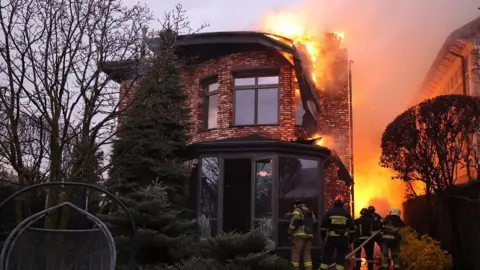 State Emergency Service of Ukraine
State Emergency Service of Ukraine
Ukraine says critical infrastructure was targeted in Dnipro
Russian President Vladimir Putin has said that an attack by his forces on the eastern Ukrainian city of Dnipro on Thursday morning was carried out using "a new conventional intermediate-range missile".
He said that the missile, codenamed Oreshnik, was a response to the use by Ukraine of US and UK long-range weaponry to hit targets inside Russia.
Putin added that Russia could attack military facilities of those countries which allowed their weapons to be used for this purpose.
The US and the UK authorised the use of US ATACMS and UK-supplied Storm Shadow missiles this week, in a major change of policy.
Ukrainian President Volodymyr Zelensky said Russia's use of the new missile was "a clear and severe escalation in the scale and brutality of this war."
"[This] is yet more proof that Russia has no interest in peace," he wrote on X, adding: "Putin is not only prolonging the war - he is spitting in the face of those in the world who genuinely want peace to be restored."
Earlier, Zelensky said the missile had the characteristics of an intercontinental ballistic missile (ICBM), even as Western officials cast doubt on this theory.
The US National Security Council, meanwhile, said "an experimental medium-range ballistic missile" had been used against Ukraine, adding that Russia probably only possessed a handful of these weapons and that they would not be a game changer in the war.

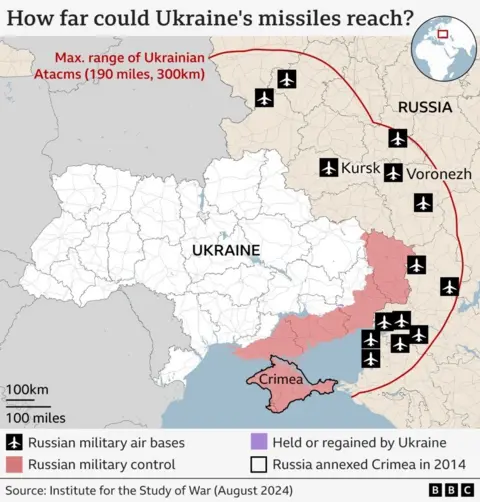
The Pentagon's deputy press secretary Sabrina Singh said the US had been notified "briefly" before the missile was launched through Nuclear Risk Reduction channels - which are used to exchange information on issues including missile launch notifications.
Putin said a "test" was successfully carried out on a non-nuclear hypersonic version of a ballistic missile and that the "target was reached".
"In response to the use of American and British long-range weaponry, on 21 November this year, the Russian armed forces carried out a combined strike on one of Ukraine's military-industrial complex sites," he said.
There is no way of counteracting this weapon, which attacks targets at a speed of 10 Mach, or 2.5-3km/s, he said.
And he warned the West that Russia was "ready for any developments. If anyone still doubts this, they shouldn’t. There will always be a response”.
Matthew Savill, director of military sciences at Rusi, a think tank, said available information about the Russian missile suggests something with a longer range than the Iskanders used so far in the conflict, which have a range of up to 500km (311 miles).
Intermediate-range ballistic missiles (IRBMs) - which Putin appears to have been describing - generally have ranges of between 3,000 and 5,500km.
Savill says the use of such a weapon may not have huge military significance but is symbolically important, coming on the back of Russia's revised nuclear doctrine which many see as a lowering of the threshold for the use of such weapons.
It is, he says, a not so subtle reminder that Russia has a wider arsenal of different and larger missile types and is ready to develop more.
Putin's announcement comes as the conflict in Ukraine - which marked its 1,000th day on Tuesday - appears to be entering a new, dangerous phase.
Last Sunday US President Joe Biden gave Ukraine the go-ahead to use long-range Army Tactical Missile System (ATACMS) to strike inside Russia, and two days later they were launched into Russia's Bryansk region.
On Wednesday, Ukraine was reported to have used UK-supplied Storm Shadow missiles against Russian targets. On the same day, Biden also agreed to give Ukraine anti-personnel landmines.
The Western moves were apparently in response to Moscow's deployment of North Korean troops as it prepares for an offensive aimed at driving Ukrainian troops out of a small area they have occupied in Russia's Kursk region.
But they also come as Donald Trump prepares to return to the US presidency in two months' time.
Trump has promised to end the US involvement in wars and instead use taxpayers' money to improve Americans' lives. He has said he will bring the Russia-Ukraine war to an end within 24 hours, without saying how.
Also this week Putin - seemingly reacting to these moves - ratcheted up the tension still further by loosening the conditions of use for Russia’s nuclear weapons.
And Russia stepped up air strikes against Ukrainian infrastructure, as its ground forces continue their advance in eastern Ukraine.

 6 hours ago
1
6 hours ago
1
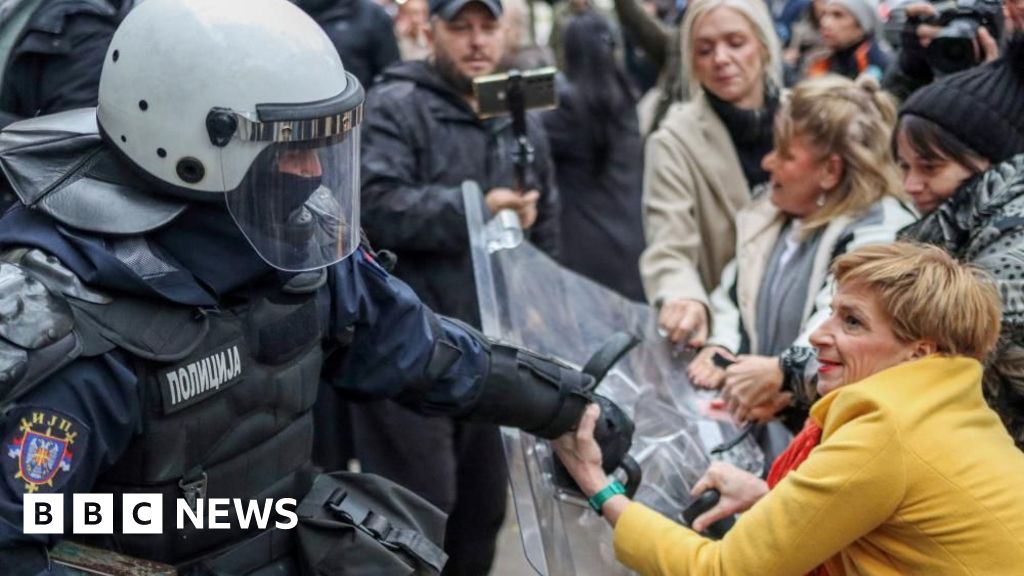
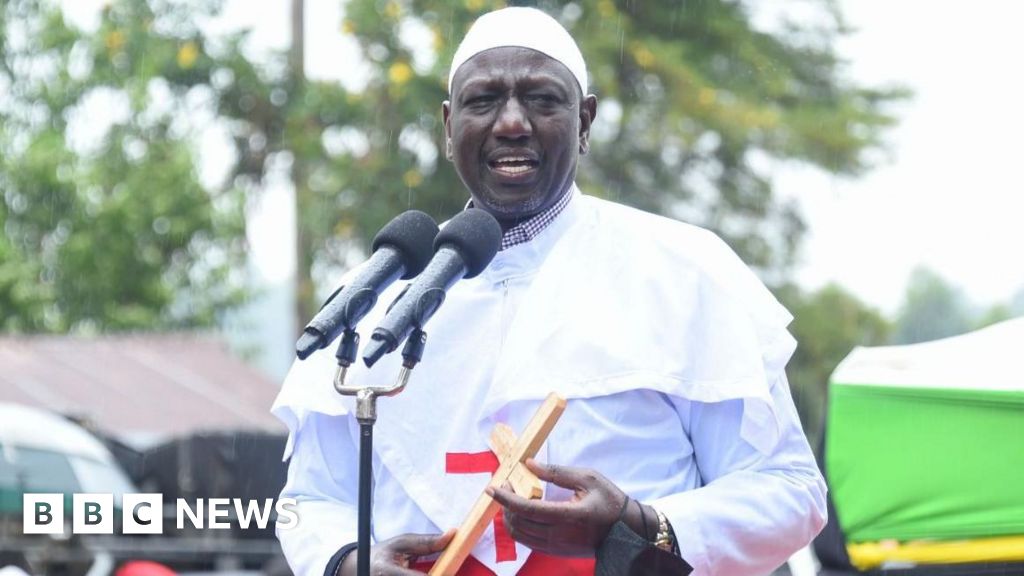
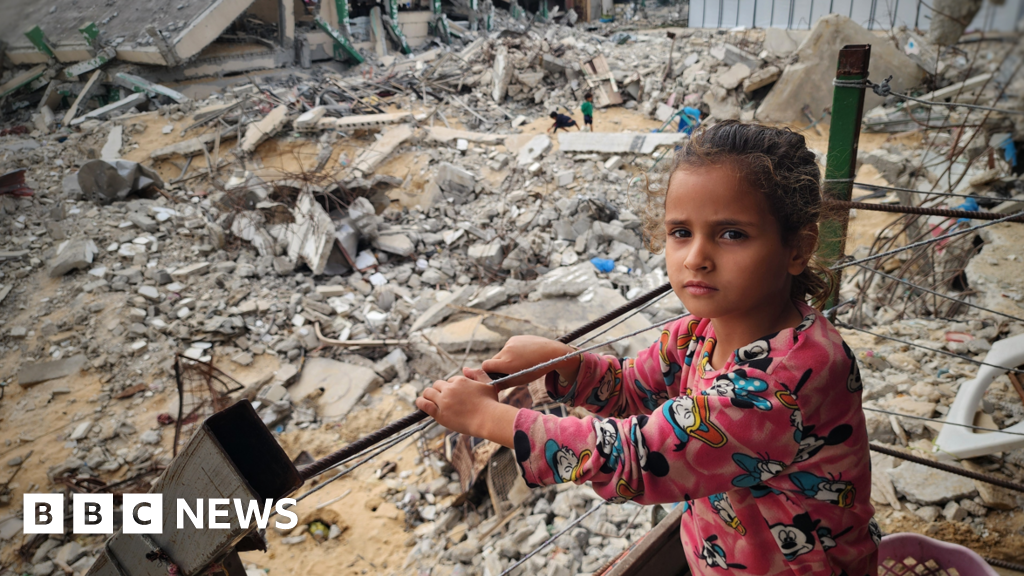





 English (US)
English (US)